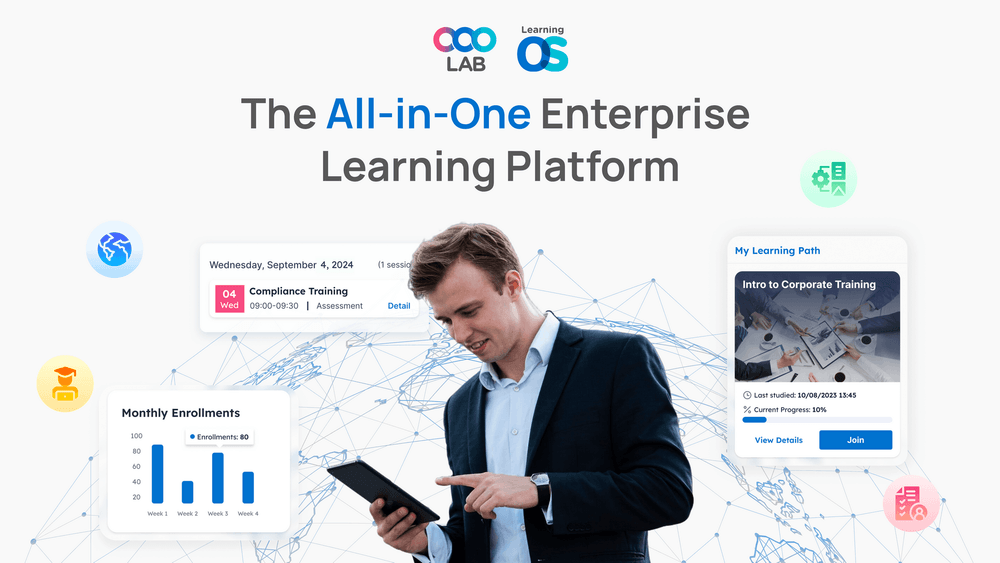

In an era of rapid technological change and evolving workplace dynamics, measuring and improving the Skill Quotient of employees has become a cornerstone of organizational success. Skill Quotient, which represents an individual’s technical and professional competencies, helps organizations identify strengths, address weaknesses, and plan for the future. Assessing Skill Quotient with the right tools allows businesses to gain deeper insights into employee capabilities, enabling informed decisions about training, hiring, and resource allocation.
This article delves into the essential tools for measuring Skill Quotient, emphasizing their role in fostering a skilled and adaptive workforce.

Skill Quotient assessments provide organizations with a clear understanding of employee capabilities in relation to job roles and business objectives. These evaluations are crucial for identifying skill gaps, designing targeted training programs, and aligning employee strengths with strategic goals. Moreover, assessments foster a culture of continuous learning and growth, ensuring employees remain relevant in their roles.
For organizations already utilizing Enterprise Learning Management System (LMS), Skill Quotient assessments can be integrated into the learning ecosystem, making evaluations seamless and scalable.
>>> Read more: Skills as the Key to Success in a Rapidly Evolving Workforce
>>> Read more: What is an Enterprise LMS
>>> Read more: Customization Options for Enterprise LMS
>>> Read more: Common challenges when implementing an Enterprise LMS
>>> Read more: Enterprise LMS - revolutionizing corporate training and development
A variety of tools are available to evaluate Skill Quotient. These range from technical platforms measuring hard skills to systems offering comprehensive insights into an individual’s professional and cognitive abilities.
Technical assessment tools are widely used for evaluating proficiency in specific job-related skills. For example, platforms like HackerRank and Codility provide coding tests tailored to software developers, while simulation software is common in fields like engineering and operations. These tools offer detailed reports and benchmarks, enabling managers to pinpoint skill levels with precision.
Another example is LinkedIn Skill Assessments, which allow professionals to test their knowledge in various fields, such as software proficiency or marketing techniques. These assessments are particularly effective for validating technical skills in a professional context.
While technical assessments focus on hard skills, psychometric tests evaluate cognitive abilities, problem-solving capabilities, and emotional intelligence. Tools like Hogan Assessments and Myers-Briggs are popular choices for identifying traits that influence how individuals learn and adapt to new challenges. Although these tests don’t directly measure technical skills, they provide valuable insights into an employee’s potential for growth.
An Enterprise LMS offers a robust solution for assessing and improving Skill Quotient. These systems facilitate tailored assessments, track employee progress through certifications, and generate data-driven insights. SAP Litmos, for instance, provides gamified learning modules that engage employees while evaluating their competencies. The integration of LMS tools into an organization’s HR processes creates a seamless framework for skill development.
Performance analytics tools integrated with project management platforms like Jira or CRM systems like Salesforce help evaluate workplace competencies in real time. Metrics such as task completion rates, error margins, and adherence to deadlines offer indirect but meaningful indicators of an employee’s Skill Quotient.
Multi-perspective evaluation tools like SurveyMonkey and Culture Amp collect input from peers, supervisors, and subordinates, offering a well-rounded view of an employee’s skills and behaviors. This approach provides unique insights into soft skills, collaboration, and leadership capabilities, which are increasingly critical in modern workplaces.
Book Free Demo with us. Bring your Training and Learning to a new height with LearningOS.

Choosing the right Skill Quotient assessment tool requires careful consideration of its features. Effective tools must offer customization to align with specific job roles, provide real-time feedback for immediate improvement, and scale effectively across an organization. Integration capabilities with existing systems, such as HR software or Enterprise LMS, ensure seamless operations, while advanced analytics provide actionable insights into individual and team performance.
Maximizing the value of Skill Quotient assessments involves integrating them into broader organizational processes. Assessment results can inform personalized training plans delivered through Enterprise LMS, ensuring employees focus on areas needing improvement. For example, employees identified with skill gaps can be assigned tailored learning modules, allowing them to progress at their own pace.
Incorporating assessment insights into performance reviews helps managers adopt a data-driven approach to appraisals, promotions, and succession planning. Regular assessments also enable organizations to monitor skill development over time, ensuring the workforce remains competitive and adaptable.
For sales teams, combining Skill Quotient assessments with sales training modules delivers targeted development. By linking training outcomes with assessment data, organizations can evaluate the effectiveness of their programs and adjust strategies as needed.
Skill Quotient assessment tools are indispensable for organizations aiming to remain competitive in an ever-evolving marketplace. These tools not only measure technical and professional competencies but also guide strategic decisions about workforce development.
By leveraging platforms like HackerRank for technical evaluations, LinkedIn for skill validation, and Enterprise LMS for continuous learning, organizations can foster a skilled and adaptable workforce. Coupled with insights from performance analytics and 360-degree feedback, these tools provide a comprehensive picture of employee capabilities.
Investing in the right tools and integrating them effectively ensures that Skill Quotient assessments drive meaningful outcomes, empowering organizations to unlock the full potential of their talent pool.
At OOOLAB (pronounced 'uːlæb'), our mission is to make complex learning operations simple. We aim to positively impact the lives of over 1,000,000 learners and educators by the end of 2026.
OOOLAB's LearningOS provides educational institutions and corporate enterprises with an all-in-one solution to create and deliver engaging learning experiences.
We meet organizations' needs or support your growth. We provide undivided attention. We provide:
1. Dedicated success manager: We offer direct communication with a real human who'll discuss your enterprises unique learning operations and goals.
2. Personalized setup: Our team will help you transition to LearningOS on your schedule, one step at a time.
3. Around the clock support: Get help from us any time, and in any time zone.
We have recently launched a new AI training tool, Skill Quotient OS, designed to elevate hybrid training to new heights. It offers role-play exercises with scenarios and assessments.This tool can apply in sales training, corporate development and customer support training in any industry.
Reach out to us at: LinkedIn, Facebook, Instagram, Tiktok, X
1. What are the main benefits of LearningOS
Our platform is easy to use and automates all aspects of your learning operations. It efficiently manages complex tasks, allowing you to concentrate on delivering exceptional learning experiences.
2. What main features does LearningOS offer?
Our all-in-one software solution combines a Content Management System, a Learning Management System, content authoring tools, and a mobile friendly Learner Portal.
3. Can your platform be used for corporate enterprises?
Absolutely! LearningOS is an Enterprise LMS is a great fit for corporate learning. In fact, we have clients with up to 700,000 employees using LearningOS! Upskill your workforce by creating and assigning interactive eLearning content while effortlessly tracking employee progress.
4. Who currently uses your platform?
Our platform is currently used by over 120,000+ learners, parents, and employees across 21 countries worldwide!
5. What types of content options are available on your platform?
We offer ready-to-go curriculums for various educational purposes or our expert design team can build a custom course for you. We can also upload your existing learning materials and enhance them digitally.
6. What is unique about LearningOS?
Our platform, designed by educators for educators, provides you with all the tools you need to scale. Build and promote your own hybrid and blended learning courses and save money on licensing fees by owning your own proprietary content.
7. How can I get started?
Schedule a meeting with our experts and we’ll talk about how our platform can address your unique challenges and help to grow your business.